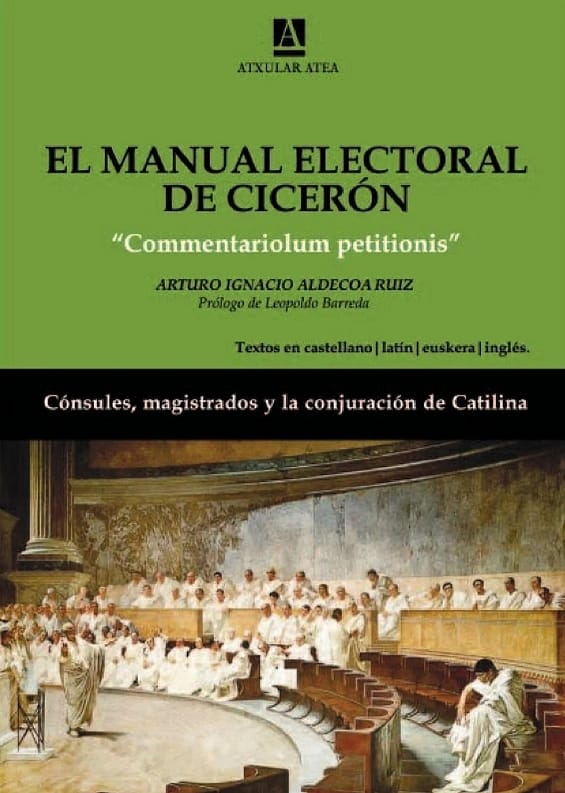
Cicero's electoral manual: Arturo Ignacio Aldecoa Ruiz
The four Catilinaria de Cicerón, speeches given before the Senate and the Roman people to unmask the Conjuration of Catilina, are perhaps the summit work of the Ciceronian oratory, and since its publication (something surely retouched by Cicero to adapt the oratory pieces as written works ) are a key reference in universal political history alongside the Demosthenes philippics.
But Marco Tulio was not the only Cicero who bequeathed us famous writings. The "Commentariolum Petitionis", a small manual to carry out the electoral campaign of the elections to the consulate of the year 63 BC, written by Quinto, brother of Marco Tulio Cicerón and addressed to it, gathers a series of perennial value tips to ensure that voters support the candidate in their electoral aspirations. In addition to fun, the manual reflects how little humanity has changed in all this time.
Reading the Cicerones (either Marco Tulio, or his brother Quinto), is not only interesting and fun, but it also allows us to know human nature better, and therefore, to know ourselves better, which is, as he said the inscription of the Temple of Apollo in Delphi, the secret of wisdom.


